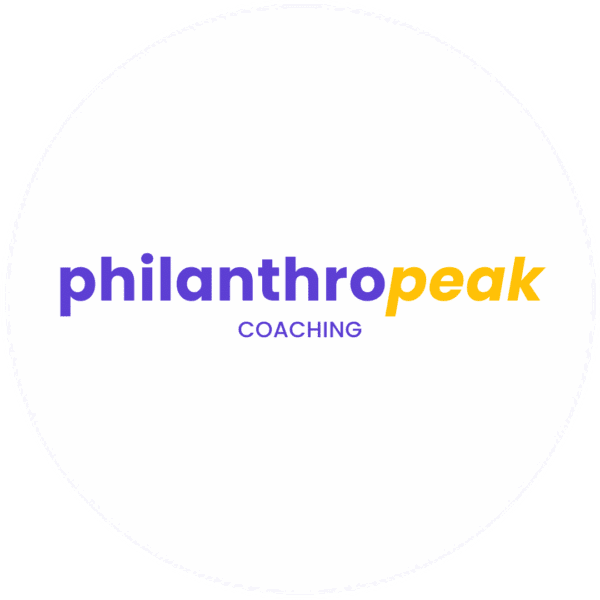
Navigating the Complex Relationship Between ADHD and Addiction: Insights and Strategies
Living with ADHD can be tough enough on its own, but throw addiction into the mix, and things get even trickier. People with ADHD often find themselves facing unique challenges when it comes to addiction. It’s not just about having trouble focusing or being impulsive; it’s about how these traits can lead to risky behaviours and self-medication. Understanding the link between ADHD and addiction is crucial for finding ways to manage both effectively. In this article, we’ll explore some insights and strategies that can help navigate this complex relationship and offer support to those struggling with these dual challenges.
Key Takeaways
Table of Contents
Toggle- ADHD and addiction often go hand-in-hand, with impulsivity and self-medication being common links.
- Managing both conditions requires a combination of medication, therapy, and support networks.
- Recognising ADHD as a unique strength can help in developing resilience and coping mechanisms.
Understanding the Link Between ADHD and Addiction

The Role of Impulsivity in Addiction
Individuals with ADHD often struggle with impulsivity, a key factor that can lead to addictive behaviours. This impulsivity might drive them to experiment with substances or engage in risky actions without fully weighing the consequences. The brain’s reward system in ADHD can make the immediate gratification from substances even more appealing, leading to a higher likelihood of developing addiction. It’s a bit like having a car with a stuck accelerator—things can get out of control quickly.
Self-Medication and ADHD
For many with ADHD, substances like alcohol or drugs become a form of self-medication. They might use these to cope with symptoms or emotional distress, seeking relief from the chaos of their minds. For instance, some might turn to alcohol to calm hyperactivity or stimulants to boost focus. However, this temporary relief can trap them in a cycle of dependency, worsening the underlying ADHD symptoms.
Co-occurring Mental Health Disorders
ADHD rarely travels alone. It’s often found alongside other mental health issues like anxiety or depression. These co-occurring disorders can increase the risk of addiction, as individuals might use substances to manage these additional challenges. The presence of multiple disorders complicates treatment and requires a nuanced approach to address all aspects of a person’s mental health.
Environmental and Genetic Factors
The environment plays a huge role in the development of both ADHD and addiction. Factors such as family dynamics, peer influences, and life stressors can contribute to the risk. Genetically, individuals with ADHD may have a predisposition to addictive behaviours, making them more susceptible when exposed to substances. Understanding these factors is crucial for developing effective prevention and treatment strategies.
Recognising the interplay between ADHD and addiction is essential for creating effective treatment plans. By understanding these dynamics, individuals and their support networks can better navigate the challenges and work towards recovery.
Strategies for Managing ADHD and Addiction

Professional Treatment Options
When dealing with ADHD and addiction, seeking professional help is often the first step. This could involve therapy, medication, or a mix of both. Therapists and doctors can tailor a treatment plan that addresses both conditions simultaneously. It’s not just about managing symptoms but understanding the root causes. A mix of cognitive-behavioural therapy (CBT) and medication can be a game-changer, providing the structure needed to tackle daily challenges.
Therapeutic Approaches and Counselling
Therapy plays a huge role in managing ADHD and addiction. Cognitive-behavioural therapy (CBT) helps individuals develop coping strategies, while dialectical behaviour therapy (DBT) can assist in managing emotions and reducing impulsivity. Group therapy sessions offer a platform to share experiences and learn from others, creating a supportive community. Meditation and mindfulness practises can also help improve focus and manage cravings.
Medication Management
Proper medication management can significantly reduce the risk of substance abuse. Stimulants, non-stimulants, and antidepressants might be prescribed depending on individual needs. It’s crucial to work closely with healthcare providers to monitor effects and adjust dosages. Regular check-ins ensure the medication is helping without leading to dependency.
Building a Supportive Network
A strong support network can make all the difference. Family, friends, and support groups provide the emotional backing needed to navigate the complexities of ADHD and addiction. Engaging with ADHD communities offers a sense of belonging and shared understanding. They can provide encouragement, share coping strategies, and help reduce feelings of isolation.
The Impact of ADHD and Addiction on Daily Life

Living with ADHD combined with addiction can really mess with personal relationships. Communication becomes a minefield. Those with ADHD might miss social cues or interrupt, leading to misunderstandings. Add addiction into the mix, and trust issues can arise, making things even more complicated. Partners, friends, and family might feel like they’re walking on eggshells, unsure of how to help or when to step back. It’s not uncommon for people with ADHD to feel isolated, even when surrounded by loved ones.
Effects on Professional Life
In the workplace, ADHD can throw a spanner in the works. Keeping track of tasks, meeting deadlines, and staying organised can feel like climbing a mountain. When addiction is in the picture, absenteeism and decreased productivity often follow. Colleagues might not understand the struggle, leading to tension and sometimes even job loss. For many, the pressure to perform can lead to using substances as a way to cope, creating a vicious cycle.
Coping with Emotional Dysregulation
Emotional dysregulation is a biggie for those with ADHD. Add addiction, and emotions can swing wildly, from high highs to low lows. It’s like being on a rollercoaster without a seatbelt. Small setbacks might feel like the end of the world, while successes can trigger euphoria. This emotional turbulence can be exhausting, not just for the individual but for those around them too.
Navigating Social Stigma
Stigma is a heavy burden. Society often misunderstands ADHD and addiction, labelling those affected as lazy or irresponsible. This can lead to shame and guilt, making it harder for individuals to seek help. Navigating this social stigma requires resilience and support. Being open about these challenges can help break down barriers, but it’s not easy. Many fear judgement or rejection, which can keep them from reaching out for the support they need.
Harnessing Strengths and Building Resilience

When you think about ADHD, the first thing that might pop into your head is the challenges it brings. But let’s flip that script. ADHD isn’t just about hurdles; it’s a doorway to some pretty unique strengths. People with ADHD often have this incredible ability to hyperfocus. It’s like having a superpower that lets you dive deep into tasks that truly captivate you. Sure, staying on track with mundane stuff can be tough, but when you’re in the zone, your productivity can skyrocket.
Dealing with ADHD can feel like a never-ending juggling act. But guess what? You can turn those struggles into strengths. Start by recognising what works for you and what doesn’t. Maybe it’s setting a timer for tasks or using apps to keep you organised. Find your rhythm and stick to it. And hey, don’t forget to give yourself a break when things don’t go as planned.
This journey isn’t just about strategies and hacks. It’s also about building a relationship with yourself that’s grounded in self-compassion. You might stumble, and that’s okay. The key is to pick yourself up and keep going. Building resilience is about learning from those stumbles and growing stronger with each step. Remember, embracing your ADHD means embracing all parts of yourself, not just the bits that society deems ‘normal’.
By embracing ADHD as part of your identity, you open up a path to personal growth and self-discovery. It’s not just about managing symptoms but about thriving with all the unique traits that come with it.
Connecting with others who share similar experiences can be incredibly validating. ADHD communities, whether online or in-person, offer a platform to share stories, tips, and encouragement.
- Join Support Groups: Look for local or online groups where you can connect with others facing the same challenges.
- Share Experiences: Talking about your journey can help others and provide you with new perspectives.
- Learn Together: These communities often share resources and strategies that you might find helpful.
Discover how to turn your strengths into a powerful tool for success and build resilience in your life. At PhilanthroPeak, we offer tailored coaching that helps you navigate challenges and unlock your true potential. Ready to take the next step? Visit our website to learn more about how we can support you on your journey!
Conclusion
Living with ADHD and addiction can feel like a never-ending battle, but it’s important to remember that you’re not alone in this journey. The link between ADHD and addiction is complex, but understanding it is the first step towards managing both. With the right support, whether it’s from professionals, support groups, or loved ones, you can find strategies that work for you. It’s all about taking one step at a time and being patient with yourself. Remember, every small victory counts, and reaching out for help is a sign of strength, not weakness. Keep pushing forward, and know that a balanced and fulfilling life is within reach.
Frequently Asked Questions
How can ADHD lead to addiction?
ADHD can sometimes cause people to act without thinking, which might lead them to try drugs or alcohol without considering the risks. Some people with ADHD might also use these substances to feel better or escape from their symptoms, but this can lead to addiction.
What are the signs of addiction in someone with ADHD?
Signs of addiction in a person with ADHD can include changes in mood, neglecting responsibilities, and using substances to cope with stress or emotions. They might also have trouble stopping the substance use even if it causes problems.
How can someone with ADHD and addiction get help?
Getting help for ADHD and addiction often involves seeing a doctor or therapist who understands both conditions. Treatment can include medication, therapy, support groups, and learning new ways to handle stress and emotions.





